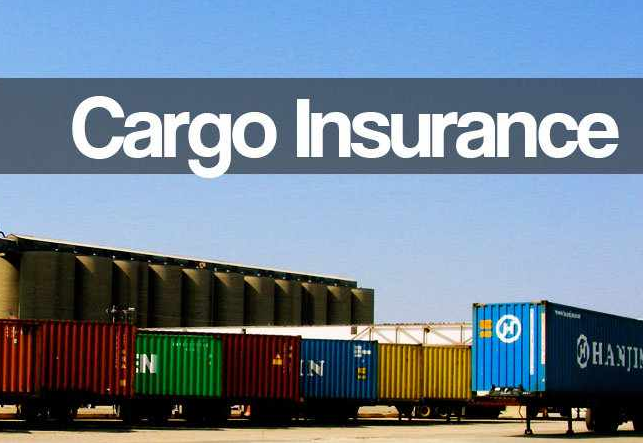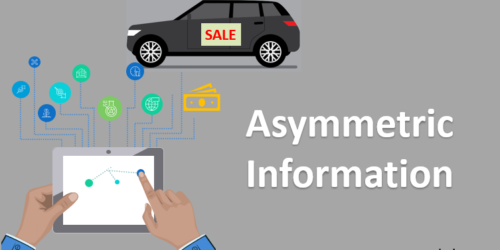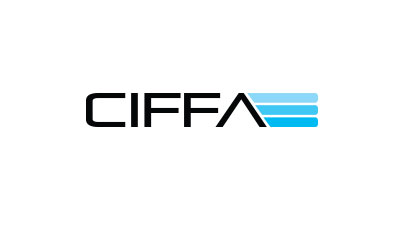CIFFA Exam Practice Questions and Answers – Cargo Insurance

CIFFA Exam Practice Questions and Answers – Cargo Insurance
- What is the meaning of utmost good faith?
It is the full disclosure of all material facts to the insurance underwriter.
- Name two features of the term insurable interest.
There must be an object exposed to an insurable risk. Insured party must have some legal relationship to the object.
- Describe an insurance policy.
An insurance policy is a contract between the insurer and the insured. It states the perils against which the policy gives protection and in what amount.
- Describe an insurance certificate.
It is a document, which acts as the contract between the insurer and the insured. The certificate provides details of insurance coverage as well as transportation details and particulars of the shipment.
- What is an open policy? Describe it.
An open policy is a contract between the insurer and insured prepared in general terms covering specified goods on agreed conditions. Monetary limits are applied to any one conveyance or location. The specified goods are generally a wide range of goods to include as many shipments as possible.
- Name examples of losses that may be excluded in an insurance policy.
Wilful misconduct of insured party, losses caused by delay of shipment, any inevitable loss, loss by inherent vice.
- FPA, what does it mean, what does it cover?
Free of Particular Average, Cargo Clause “C”. Provides only minimum coverage. Coverage of total losses only caused by marine perils. Also covers general average losses. Partial losses are covered only if caused by fire, stranding, sinking, and collision of the vessel.
- Risk of war, strikes, civil commotion, and mines are usually excluded on marine cargo policies. How would you obtain coverage?
An express warranty or a specific additional agreement made with the insurance underwriter must be written into the insurance certificate. For this additional coverage, an additional premium is generally charged.
- Can war risks be covered when cargo is on land?
Usually not unless an agreement is obtained with the insurance company.
- What does inherent vice mean? Is this covered in an all risks policy?
A property within the cargo, which causes, or is liable to cause, loss or damage to the cargo without any insurable peril occurring, e.g., cargo which may spontaneously combust, or fruit, which may spoil over time.
- What does warranted goods surveyed prior to loading mean?
During the loading of the container, an insurance surveyor is on-site to inspect and guarantee the goods were in good condition and properly loaded OR an independent surveyor will inspect the goods and complete a written report, submitted to the insuring party, verifying the value and condition of the goods prior to shipping.
- How would you explain general average to a customer?
General average is a system founded on the principle of “justice to all”, making good marine losses, voluntarily incurred, for the safety of the entire venture, that is ship, freight, crew.
The essential ingredients are:
A common adventure: ship, cargo, freight must be imperilled.
The expense sacrifice must be extraordinary in nature: calling for the tugboat assistance or throwing overboard of containers to save the vessel.
The voyage must come to a safe end. Essentially, part of the cargo is sacrificed in order to save the “rest” of the cargo. The costs of a general average are shared proportionately among all who had cargo aboard the ship. This includes those who lost cargo.
- When general average has been declared for a vessel arriving at the ocean port, what will an average adjuster require from you before your cargo is released?
If the goods are not insured, the average adjuster, prior to the release of the goods, will require a cash deposit for the share of the estimated average loss. If the shipment was insured, an unlimited underwriter’s guarantee is required for the release of the goods.
- SINKS Company in Kitchener buys valves from TAPS Company in Taiwan.
Terms of Sale: FCA TAPS, Taiwan, Incoterms® 2010
4 skids @ 310 kg each, ocean export LCL, cargo value US $6,500.00.
- Which party is obligated to insure this cargo?
Under Incoterms® 2010 neither party is obligated to insure the cargo.
- To which party do you recommend insurance?
You would recommend marine insurance to SINKS Company, as they have the most exposure to loss. They would have a legal relationship to the cargo from the moment the goods are loaded onto the receiving carrier at TAPS Company.
- While awaiting the arrival of the collecting truck at TAPS, a forklift driver crushes the cargo. Who bears the loss?
Goods are sold FCA TAPS Taiwan, Incoterms® 2010, the
insurable interest is still with the seller. The seller bears the loss.
- If CIFFA forwarder’s Taiwan agent’s receiving terminal (warehouse) burns to the ground and the valves are destroyed, who suffers the loss?
Goods are sold FCA TAPS Taiwan, Incoterms® 2010. The goods have obviously been collected from TAPS Taiwan. As such, the buyer has an insurable interest in the goods under Incoterms® 2010 and the buyer will bear the loss.
- CHIPS Company in Toronto sells electronic connectors to DATA Company in Germany.
Terms of delivery: CPT Frankfurt, Germany, Incoterms® 2010 20 skids @ 220 kg each, loaded in 1 x 40-ft container, value is CAN $36,000.00.
- Who is responsible for contracting and paying the freight charges?
Under Incoterms® 2010 CHIPS Company is responsible for contracting the carrier and paying the freight charges.
- If the container is washed overboard and the whole shipment is lost at sea, who suffers the loss?
Under Incoterms® 2010, the buyer, DATA Company, has an insurable interest in the goods and must bear the loss.
- Should the seller in Toronto insure the connectors?
NO !!
- Why or why not?
Under Incoterms® 2010 the risk, or insurable interest, has transferred to the buyer once the cargo has been given to the care of the first carrier. The seller does not have an insurable interest in the goods.
- KLEANH2O Company in Winnipeg sells water filters to FRESH Company in Chile.
Terms of delivery: CIP Santiago, Chile, Incoterms® 2010
20 cartons each, dims 22 in x 24 in x 24 in @ 22 kg each, air export, value is US $15,000.00.
- Is the air freight charge prepaid by shipper or collect to consignee?
Under Incoterms® 2010, the shipper/seller is obligated to pay the freight charges.
- If the truck burns up on Highway 1 en route to the airport, who bears the loss?
Under Incoterms® 2010, the risk, or insurable interest, is transferred to the buyer when the goods are delivered to the first carrier. As such, the loss is borne by FRESH Company, Chile.
- Who must buy/provide cargo insurance?
Under Incoterms® 2010, CIP Santiago, Chile, the seller, or KLEANH2O Company, is obliged to insure the shipment.
- What level of coverage is the obliged party to “take out”, and in what amount?
The seller is obliged to “take out” minimal coverage only. Minimal coverage is FPA Total Loss Only coverage. The amount of coverage is 110% of the invoice value of the goods. In this case it would be 110 % of US $15,000.00 or in the amount of US $16,500.00.
- Calculate the insured value at CIP + 10% and state total premium payable. Show your detailed method of calculation for all steps.
4 x 40-ft containers containing Jeeps and tents
Value FCA Toronto= CAN $105,000.00
Ocean freight Montréal-Lagos per 40-ft container = US $3,000.00 Canadian charges for inland freight from Toronto to Montréal, container placing, container loading, handling per 40-ft cntr = CAN $1,500.00
All risk marine premium rate at 0.35%
Use exchange rate 1 USD = 1.02 CAD
Value of goods FCA Toronto CAN $105,000.00
Ocean freight:
US $3,000.00 x 4 = US $12,000.00 @ 1.02 = CAN $12,240.00
Inland charges: CAN $1,500.00 x 4 = CAN $6,000.00
Total CAN $123,240.00
Estimated premium = CAN $123,240.00 x 0.35% (marine premium rate)
110% CIP value = (CAN $123,240.00 + CAN $431.34) x 110 % = CAN $136,038.47 (our CIP Value + 10%)
Insurance premium = (CIP Value + 10%) x premium rate
Insurance premium = CAN $476.13 (the amount paid for insurance)
Canadian Duty/Taxes
In Canada the correct value for duty is the so-called transaction value. This means depending on the terms of delivery (Incoterms® 2010), value for duty can be either the FCA value or the CIP value, but when having a CIP value, Revenue Canada permits deduction of foreign freight charges before arriving at value for duty. Practically, you are back to square one or the FCA value at foreign port of export.
Therefore, using the FCA value of goods as value for duty in the import sample of the exercises does reflect the proper basis for establishing cost of duty/taxes.
This is not a customs broker course, nor are you expected to know the exact procedure for duty calculation. In a practical situation you would simply ask the customs broker or your customs department clearing your shipment for this information.
It is hoped that you were alert in spotting the difference between a value for duty as opposed to a value for insurance without getting confused.
- Determine the insured value at CIP + 10% and insurance premium for the shipment described below:
Supplier: Winnipeg Windings Ltd.
Goods sold: CIP Port Sao Paulo, Brazil, Incoterms® 2010
Transformer & parts (break bulk shipment)
| Invoice value Winnipeg: | CAN $110,000.00 |
| Inland freight to New Orleans and port terminals: | CAN $3,000.00 |
| Export crating: | CAN $1,000.00 |
| Documentation, legalization, handling: | CAN $1,100.00 |
| Heavy lift charge port of New Orleans: | US $2,000.00 |
| Ocean freight to Sao Paulo, Brazil: All risk marine premium 0.28% Use exchange rate 1 USD = 1.02 CAD | US $5,315.00 |
| Invoice value Winnipeg: | CAN $110,000.00 |
| Inland freight to New Orleans and port terminals: | CAN $3,000.00 |
| Export crating: | CAN $1,000.00 |
| Documentation, legalization, handling: | CAN $1,100.00 |
| Heavy Lift charge port of New Orleans: CAN $2,040.00 Ocean freight to Sao Paulo, Brazil: CAN $5,421.30 |
Total cost of goods, plus freight CAN $122,561.30
Estimated Ins. Premium (CAN $122,561.30 x 0.28%) = CAN $343.17
CIP Value = CAN $122,904.47
CIP Value + 10% = CAN $135,194.91
Insurance Premium = CAN $135,194.91 x 0.28% = CAN $378.55
CONDITIONS OF INSURANCE
Subject to Institute Cargo Clauses (A) or Institute Cargo Clause (Air), whichever is applicable or unless otherwise indicated above (*). Including War, Strikes, Riots, and Civil Commotions as per Institute Clauses.
IMPORTANT
This Certificate is subject to the terms of the Open policy, provided, however, that the right of a bone fide holder of this Certificate for value shall not be prejudiced by any terms of the Open Policy, which are in conflict with this Certificate.
SURVEY AND CLAIMS SETTLEMENT
In the event of loss or damage which may involve a claim under this insurance, notice must be given immediately to the above noted Agents so they may appoint a Surveyor if required.
LIABILITY OF CARRIERS, BAILEES, OR OTHER THIRD PARTIES
It is the duty of the Assured and/or their Agents, in all cases, to take such measures as may be reasonable for the purpose of averting or minimizing a Loss and to ensure that all rights against Carriers, Bailees, or other third parties are properly preserved and exercised.
In particular, the Assured, or their Agents, are required to follow the procedure as outlined.
This Certificate is not valid unless countersigned / signed on behalf of the Company by the Assured or their authorized Agent.
Scenario A:
- What documents will Export Electronics need to submit for the claim to be considered by the airline?
Cover letter (dated, signed with statement of claim including dollar amount), bill of lading, MAWB, pro-bills, commercial invoice(s) for entire shipment, packing list, copy of delivery receipt (notated), repair invoice or other, copy of claim or intent to claim.
- Will the carrier pay the claim? Why – why not?
Yes – within timeframe, all notices and documents completed, clearly their loss.
- If the carrier pays the claim, how much will be paid? What is the basis of the calculation?
Limited liability – 150 kg x 19 SDR = +/- SDR $3,000.00 x 70%/70 ctns @ 1.05 = +/- US $2,100.00
(40 cartons lost + 30 cartons damaged, so liability limited to 70 cartons)
Note: Exchange rate: 1 SDR = US $1.05
Scenario B:
- What type of insurance coverage would Gotta Go recommend to Export Electronics under its open policy?
A
- Calculate the insurance premium Gotta Go would have charged them for this air freight shipment. (CIF + 10% x Premium)
Estimated: $10,000 + 750.00 x 0.25% = $26.88; Actual: $10.750 + 26.88 x 110% = 11,854.57 x 0.25% = $29.64.
- Given that the claim is supported properly, what amount would the insurance company pay to Export Electronics? Explain your answer.
Full amount of claim – not limited as airline payout could be.
- What suggestions would Gotta Go make to Export Electronics to improve their competitiveness and risk management on imports?
Change terms of delivery to FCA origin and take out cargo insurance coverage.
- List some benefits Export Electronics would achieve if the CIFFA forwarder provided insurance cover on imports and exports.
Less administration, full coverage, claims handling assistance, claims could be paid in Canada, treated like a customer.





